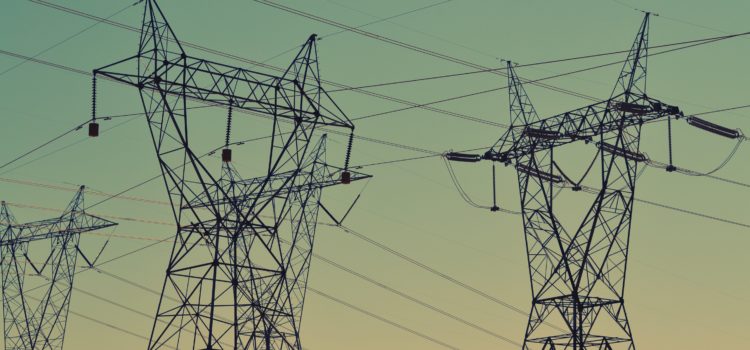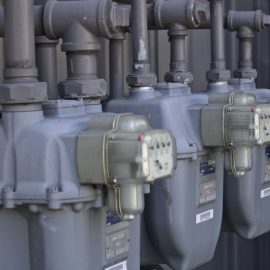

This article is an excerpt from the Shortform book guide to "How the World Really Works" by Vaclav Smil. Shortform has the world's best summaries and analyses of books you should be reading.
Like this article? Sign up for a free trial here.
Why can’t we just substitute any form of energy for another? What’s the best kind of energy for transportation? What’s the downside of electricity?
Vaclav Smil says that understanding energy is essential to understanding modern societies and economic systems. We rely on energy to power our world, yet it can’t be produced from scratch. In How the World Really Works, he weighs the advantages and disadvantages of three forms of energy.
Keep reading to learn about several energy pros and cons that will help you understand why the world works the way it does.
The Advantages and Disadvantages of Different Forms of Energy
There are many forms of energy—gravitational, heat, chemical, and radiant energy are just a few examples. Smil maintains that, because each form of energy has its own characteristics, it’s overly simplistic to believe that one form (or method of production) can always be substituted for another. Different forms of energy have different densities, different costs, and different degrees of reliability. Smil details several energy pros and cons to shed light on why we use certain forms of fuel for certain functions.
Crude Oil
Smil notes that liquid hydrocarbons refined from crude oil, such as gasoline, diesel fuel, and aviation kerosene, are the easiest form of energy to produce, store, and transport. This is because they are the densest type of energy: They store the most energy per unit of mass or volume. Fuel density matters for transportation because, the more fuel that fits into a given space, the more room is available for passengers and cargo.
In addition to fuel for transportation, crude oil also produces non-fuel products like asphalt, plastics, and lubricants, which are necessary to reduce friction in component parts of everything from plane engines to food processing equipment.
The major disadvantage of crude oil, however, is that burning fossil fuels releases carbon dioxide and other greenhouse gasses that cause climate change.
(Shortform note: Besides causing the bulk of greenhouse gas emissions, fossil fuels have other disadvantages. Because oil and gas are global commodities traded around the world, countries—and consumers—are at the mercy of fluctuating energy prices due to geopolitical events and investor sentiment. Factors as varied as elections, pandemics, or wars can cause changes in the notoriously volatile global energy market. Higher oil and gas prices can, in turn, result in high inflation and poverty. In addition, the infrastructure necessary to support oil and gas drilling can itself cause environmental destruction: For example, over 12 million acres of public lands are being used to produce fossil fuels.)
Electricity
The primary advantages of electricity are that it’s efficient, easy to use, and clean—it doesn’t release any noxious emissions.
One key disadvantage of electricity is that it’s hard to store large amounts of it affordably. In addition, there are some aspects of modern society, such as international commercial flight, that simply can’t be powered by electricity alone. Finally, most electricity relies on fossil fuels for production. In 2020, 16% of electricity was generated by hydroelectric facilities, 7% by wind and solar, and 77% from power stations fueled mostly by coal and natural gas.
(Shortform note: The reason it’s difficult to store electricity is that electrical energy is a constant flow of electrons that move within a conductor. To harness this energy, the electricity has to be converted into another form of energy, then converted back when needed. Even though this requires additional resources, there are many methods already in use for storing large amounts of electricity. For example, 95% of the energy currently being stored in the grid is in pumped hydro—a system in which the electricity pumps huge volumes of water into an upper reservoir. When the energy is needed, the water is released into a lower reservoir and passes through turbines, generating electricity. Methods such as these allow for increased reliance on electricity generated from renewable sources.)
Nuclear Energy
As Smil explains, one of the major advantages of nuclear energy is that it’s very reliable. Nuclear reactors generate electricity 90-95% of the time, in contrast to offshore wind turbines, which generate electricity about 45% of the time, and solar cells in sunny climates, which produce electricity about 25% of the time. In addition, nuclear reactors can be long-lasting.
On the other hand, nuclear reactors are expensive, and due to some high-profile accidents, such as Chernobyl, the general public perceives nuclear energy as risky. Smil emphasizes that the public’s fear of nuclear power plants is based on misperception, which we’ll discuss in more detail soon.
(Shortform note: Despite the perceived risks of nuclear power plants, 440 plants operate in 32 countries as of 2023, with the US, China, and France generating the most nuclear energy. Nuclear energy provides about 10% of the world’s electricity. Some countries get the majority of their electricity from nuclear energy: France gets around 70%, and Ukraine, Slovakia, Belgium, and Hungary get about 50%.)

———End of Preview———
Like what you just read? Read the rest of the world's best book summary and analysis of Vaclav Smil's "How the World Really Works" at Shortform.
Here's what you'll find in our full How the World Really Works summary:
- How modern-day life relies heavily on fossil fuels for nearly everything
- Why liberals and conservatives need to better understand how the world works
- Why it's nearly impossible to meet current IPCC limits on global warming






